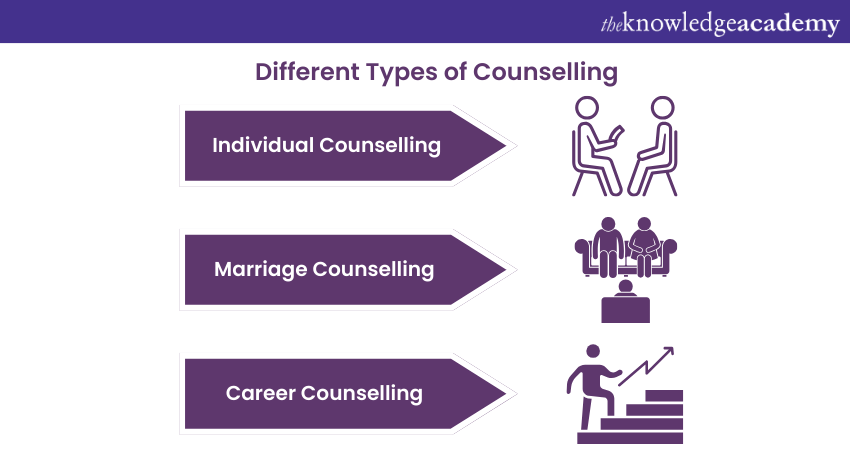Exploring the Benefits of Virtual Therapy in Modern Mental Wellness Treatment
The rise of virtual therapy marks a considerable change in mental health treatment. It provides enhanced accessibility, permitting individuals from varied backgrounds to look for assistance without geographical restraints. Adaptability in scheduling accommodates differing lifestyles, while the convenience of home can cultivate visibility. Nonetheless, the ramifications of these adjustments extend past simple benefit. The advancing landscape of therapy increases crucial concerns concerning its long-lasting effects on client involvement and treatment outcomes.
Boosted Availability for All
Although typical therapy frequently presents barriers such as geographical location and organizing conflicts, virtual therapy considerably boosts accessibility for people looking for mental health and wellness assistance. By getting rid of the requirement for physical traveling, virtual therapy allows clients from remote locations or those with movement obstacles to get in touch with qualified specialists. This mode of therapy can get to underserved populaces who may lack local psychological health sources, thereby addressing disparities in access to care. In addition, virtual systems can accommodate varied demands, offering solutions in multiple languages and accommodating numerous cultural backgrounds. Customers can involve with a more comprehensive variety of experts, supplying them with alternatives that align with their details demands and preferences. This boosted availability promotes a much more comprehensive atmosphere, allowing individuals to look for assistance without the stigma frequently associated with in-person sees. Overall, virtual therapy represents a substantial development in making psychological healthcare more accessible to all.
Versatility in Scheduling Procedure

As virtual therapy remains to gain grip, its inherent versatility in organizing sessions shows to be a substantial benefit for numerous individuals. Unlike traditional in-person therapy, virtual therapy allows clients to select session times that ideal fit their personal and expert dedications. This versatility suits those with requiring work schedules, family members obligations, or various other commitments that can make participating in physical visits testing.
In addition, clients can conveniently reschedule or adjust their sessions as required, reducing the stress and anxiety connected with inflexible consultation systems. The schedule of numerous time ports throughout the week, consisting of nights and weekend breaks, better improves availability. This versatility not just urges consistency present yet likewise cultivates a greater commitment to the therapeutic procedure. Eventually, the flexibility in scheduling sessions represents a transformative shift in psychological wellness treatment, empowering people to prioritize their health without sacrificing various other facets of their lives.
Convenience of a Familiar Environment
The convenience of a familiar atmosphere substantially improves the effectiveness of virtual therapy for many clients. Participating in therapy from the safety and security of their own homes allows individuals to feel more at simplicity, minimizing anxiousness that might go along with conventional in-person sessions. This experience can facilitate open communication, enabling customers to express their ideas and feelings a lot more freely.
Moreover, the presence of personal things and the capability to manage their environments can add to a sense of safety and leisure. Customers usually report that being in a comfortable room permits them to concentrate a lot more on the restorative process instead of the setting itself.
Additionally, the casual nature of virtual sessions can aid liquify obstacles that may exist in a standard workplace environment, cultivating a much deeper connection with specialists. On the whole, the comfort of familiar environments plays a necessary role in improving the therapeutic experience and efficiency for many people looking for mental health assistance.
Broader Variety of Therapeutic Choices
A larger variety of healing options appears with virtual therapy, enabling clients to accessibility various methods that may not be practical in traditional setups. This versatility allows individuals to explore diverse methods such as cognitive-behavioral therapy, mindfulness techniques, art therapy, and also specialized treatments like trauma-informed treatment or dialectical habits therapy.
Additionally, customers can select from a wider range of specialists, including those who focus on niche areas or specific populaces, improving the probability of locating an ideal match. Virtual systems usually supply access to team therapy sessions, assistance neighborhoods, and workshops that might be geographically unavailable otherwise.
This selection empowers clients to participate in their healing procedure according to their one-of-a-kind preferences and needs, possibly increasing inspiration and commitment to therapy. Therefore, the landscape of mental wellness care becomes much more comprehensive and adaptable, accommodating a larger selection of individual experiences and obstacles.
Minimized Stigma Bordering Therapy
Accessing therapy through virtual platforms adds to a significant reduction in the preconception typically associated with mental health and wellness care. By providing a very discreet and exclusive setting, virtual therapy permits people to look for assistance without the anxiety of being evaluated or determined. This privacy allures to those that may otherwise think twice to pursue in-person therapy due to societal perceptions surrounding mental health and wellness.
Furthermore, as the prevalence of virtual therapy increases, it normalizes the discussion around mental health, making it a more appropriate part of daily life. Individuals typically really feel a lot more comfortable reviewing their experiences on the internet, promoting openness and minimizing sensations of isolation. The ease of access of these solutions likewise encourages a broader demographic to involve with mental wellness resources, fostering a society of support as opposed to shame. Eventually, the rise of virtual therapy plays an essential role in reshaping perspectives towards seeking help, adding to a more accepting society regarding psychological wellness difficulties.
Cost-Effectiveness and Affordability

Reduced Session Prices
Several people looking for psychological wellness assistance discover that virtual therapy significantly reduces session prices contrasted to standard in-person alternatives. The removal of travel expenditures and time off work usually adds to overall savings. Furthermore, many virtual therapists supply competitive rates due to lower above costs connected with preserving a physical office. This shift in expense permits customers to access quality psychological wellness services without the monetary pressure that may come with conventional therapy. For several, this price enables more frequent sessions, which can enhance treatment outcomes. Therefore, virtual therapy not only equalizes access to psychological healthcare yet also provides a lasting financial design that lines up with customers' spending plans, making mental health support more possible for a larger audience.
Expanded Access Choices
While typical therapy commonly offers logistical barriers, virtual therapy substantially expands access options for individuals seeking mental healthcare. By eliminating the need for travel and allowing versatile scheduling, virtual therapy fits varied way of livings and dedications. This accessibility is specifically advantageous for those in remote locations or with flexibility challenges. Furthermore, the cost-effectiveness of virtual therapy minimizes financial pressure, making mental wellness services much more obtainable. Several systems supply tiered prices or moving range charges, promoting price. Insurer progressively acknowledge virtual therapy, more improving its financial availability. On the whole, virtual therapy not only expands the range of that can get treatment however also addresses economic obstacles, making psychological wellness support a lot more inclusive and achievable for all.
Boosted Continuity of Care
Enhanced continuity of care becomes a significant benefit of virtual therapy in modern mental health care. This strategy enables individuals to preserve consistent interaction with their specialists, no matter geographical obstacles or scheduling conflicts. adhd counselling. The flexibility of virtual sessions fosters normal check-ins, which are essential for keeping track of development and adjusting treatment prepares as essential
Additionally, digital wellness records and telehealth platforms facilitate seamless details sharing amongst care service providers. This interconnectedness assures that all professionals involved in a client's care are updated on therapy advancements, causing even more worked with and reliable interventions.
Clients frequently experience decreased anxiousness and enhanced engagement due to the comfort of accessing therapy from acquainted settings. Such availability enhances adherence to therapy routines, eventually boosting outcomes - relationship therapy. To sum up, virtual therapy not only bridges gaps in mental health services however additionally strengthens the continuity of care, an essential part of successful therapeutic connections
Regularly Asked Inquiries
How Does Virtual Therapy Guarantee Discretion and Privacy for Customers?
The existing question addresses the steps virtual therapy employs to secure client confidentiality. Using encrypted systems, secure logins, and compliance with laws like HIPAA, virtual therapy assurances that delicate details remains personal and unattainable to unauthorized individuals.
Can I Switch Over Therapists Quickly in Virtual Therapy?
Switching specialists in virtual therapy is normally straightforward. Customers can communicate their need for a modification with the system, allowing for adaptability in finding a far better match without the logistical difficulties of in-person appointments.
What Modern technology Do I Need for Virtual Therapy Procedure?
To take part in virtual therapy sessions, a specific typically needs a reliable net link, a computer or website smartphone with a camera and microphone, and access to a safe video conferencing platform specified by their specialist.

Are Virtual Therapy Sessions as Effective as In-Person Sessions?
Recent studies show that virtual therapy sessions can be similarly efficient as in-person sessions, relying on the person's preferences and conditions. Factors such as comfort and ease of access might boost the general therapeutic experience for some customers.
What Should I Do if I Experience Technical Issues During a Session?
If technological problems occur throughout a session, one need to steadly interact the issue to the specialist, attempt to reconnect, or switch to a back-up method. Persistence and flexibility are vital in handling these disruptions.